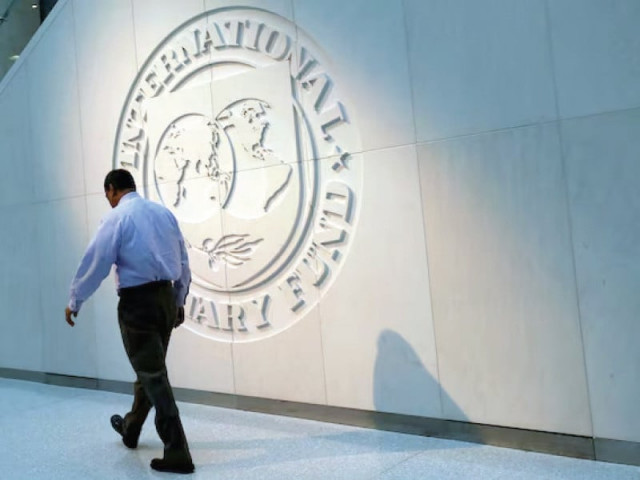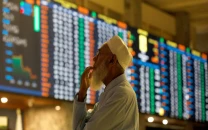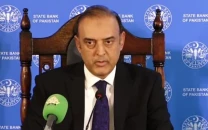Govt resists IMF pressure on taxes
Faces backlash over increased taxes on hybrid vehicles, telecom industry demands

Pakistan’s tax chief disclosed on Thursday that the government successfully resisted pressure from the International Monetary Fund (IMF) to charge normal income tax rates to the real estate sector, which still enjoys a “much-favourable” regime.
The Ministry of Industry also revealed that prices of hybrid and electric vehicles are set to increase by 15% from July due to an increase in their taxes from 8.5% to 25%. In addition to the automobile sector, Pakistan’s struggling telecom sector also expressed outrage against the government’s decision to make them act as a police force for tax collection.
The Chairman of the Federal Board of Revenue, Malik Amjad Zubair Tiwana, made the statement about the real estate sector during a meeting of the Senate Standing Committee on Finance. The Pakistan Peoples’ Party (PPP) is helping the government pass the budget by smoothly conducting the standing committee’s proceedings. The committee’s proceedings also revealed that the budget was made in isolation, as at least two ministries or their stakeholders claimed they were not aware of changes made in tax laws related to their subjects under the Rules of Business.
While discussing the taxation of the real estate sector, the FBR chairman disclosed that the IMF was pressuring Pakistan to charge normal tax rates from the real estate sector instead of fixing it at 15%.
“The real estate tax regime is still much-favourable,” said Tiwana while responding to a question raised by Senator Faisal Vawda about the capital flight after the changes in capital gains taxes charged to the real estate sector. The chairman’s statement shows that the government is willing to go to any extent to protect the “holy cows” – a facility not available to the marginalised salaried class of Pakistan.
Car price hike
Vawda also raised the issue of heavy increases in duties and taxes on imported and locally made vehicles. The government doubled the customs duty to 50% on the import of electric vehicles priced above $50,000 and increased the sales tax rate from 8.5% and 12.75% on hybrid and electric cars to 25%.
“The FBR has cherry-picked the 2021-26 policy and hit only those companies that have begun hybrid production with a 25% sales tax,” said Ali Asghar Jamali, the Chief Executive of Indus Motors. The increase in sales tax rates is in violation of the Auto Industry Development and Export Policy and breaches commitments given by four Pakistani prime ministers to Japanese investors and the ambassador to Pakistan, said Jamali. He added that the new tax regime will reduce the sales of hybrid vehicles from the current 7,000 per annum to zero.
The General Manager of the Engineering Development Board (EDB), Asim Ahmad, claimed that the FBR did not consult the Ministry of Industry before reversing the incentives given in the automobile policy. He told the standing committee that the expected price increase of various hybrid vehicles would range from Rs1.4 million to Rs2.3 million across different variants being manufactured locally. This translates into a 15.2% increase in prices.
The EDB official further said that the price of the Corolla Cross HEV X would jump to Rs11.4 million, the Santa FE Signature to Rs16.9 million, and the Haval H6 HEV to Rs13.7 million after the applicability of the 25% tax.
“I have talked to the concerned ministers, and they do not have any knowledge of the change in tax rates for the automobile sector,” said Vawda.
In violation of the 2021-26 policy, the sales tax on Hybrid Electric Vehicles has been increased from 8.5% to 25% without any consultation with government and private sector stakeholders. This has resulted in exorbitant price increases, expected to reduce sales from July 1, 2024, and lead to extremely low returns on investment, according to the EDB. The EDB official told the committee that the Indus Motor Company has invested $100 million in hybrid technology, Sazgar Engineering Works invested $15 million, and Hyundai Nishat has invested $10 million in hybrid-specific vehicles. Increasing the sales tax from 8.5% to 25% on HEVs will jeopardise investments already made by Japanese, Chinese, and Korean companies in hybrid technology, according to Asim.
Under the 2016 policy, to promote electric vehicles, the sales tax for cars with battery packs below 50 KWH was reduced from 17% to 1%. Similarly, the sales tax on hybrid electric vehicles was halved to 8.5% to incentivize investment in new technologies, including EVs and hybrids.
Asim said the FBR’s tax changes might hinder planned investments in advanced technologies like Plug-in Hybrid Electric Vehicles (PHEVs), which are similar to EVs but do not necessarily require charging infrastructure—a significant challenge for faster EV adoption.
“The decision by the finance division, made in isolation, will create unrest among investors who have invested in hybrid technology based on recent government incentives under AIDEP 2021-26,” according to the EDB’s written response submitted to the committee.
Telecom sector
All the telecom companies also expressed outrage in the standing committee over the government’s decision to make them act as a “police” force to bring non-filers into the tax net or face a fine of Rs100 million per week. The telecom sector and the Ministry of Information Technology have been taken by surprise, as even the IT minister was unaware of the tax changes, a representative of the telecom companies told the standing committee. The FBR and the government need to understand that the companies cannot act as their police.
The suggestions made in the budget will harm the already struggling industry and hamper the dream of Digital Pakistan, according to the telecom firms. The government has proposed a 75% advance tax for non-filer mobile phone users, and if these companies fail to block their SIM cards, the government has proposed a penalty ranging from Rs100 million to Rs200 million for every fortnight.
The telecom infrastructure is not equipped to handle multiple tax rates, leading to operational inefficiencies and increased consumer costs, according to the industry.
The companies have also protested against increasing sales tax on mobile phone sets valued up to $500, which they said will destroy digital penetration in lower-income groups and severely compromise any dream of a Digital Pakistan.



















COMMENTS
Comments are moderated and generally will be posted if they are on-topic and not abusive.
For more information, please see our Comments FAQ